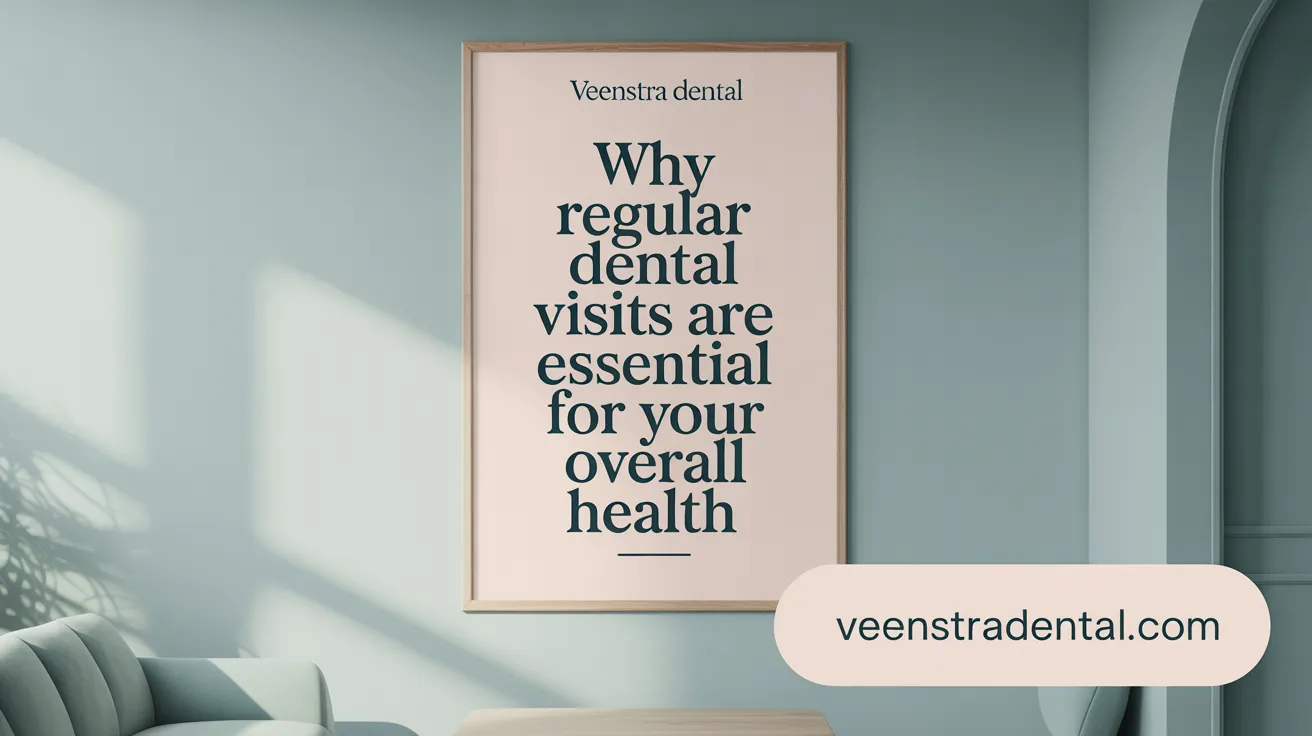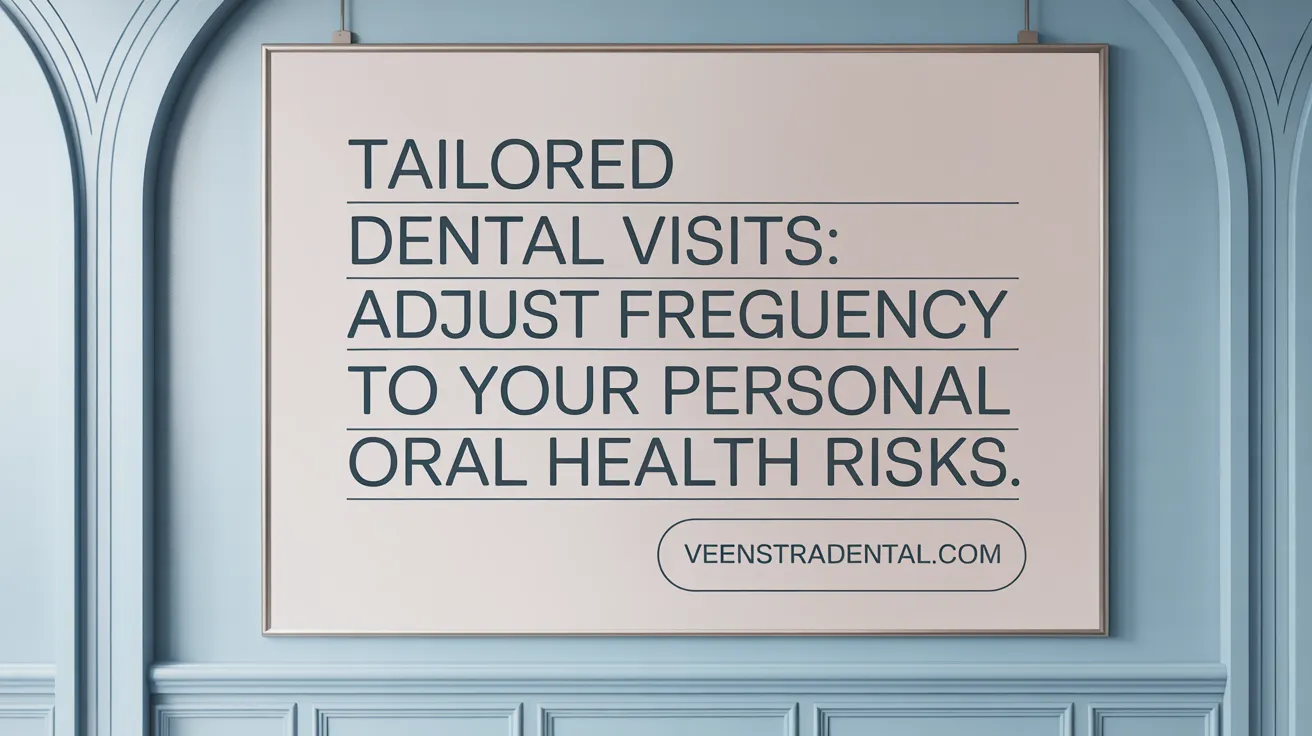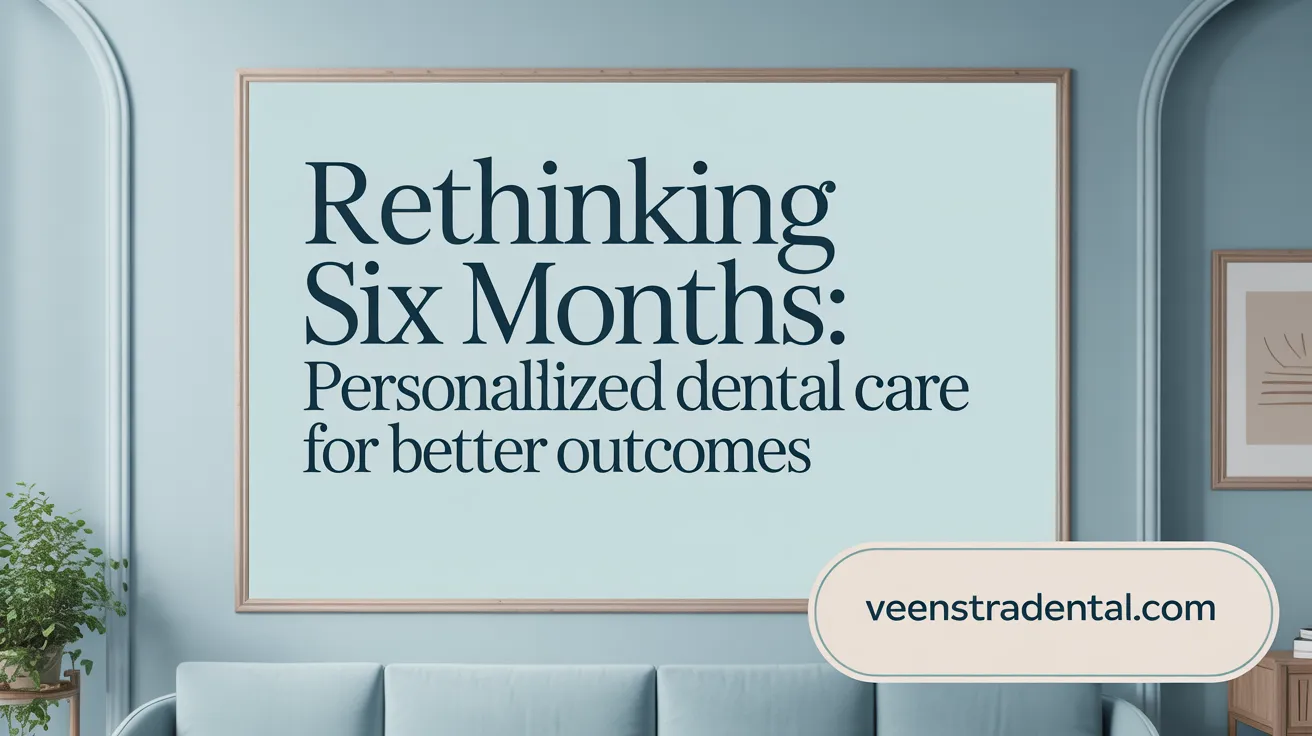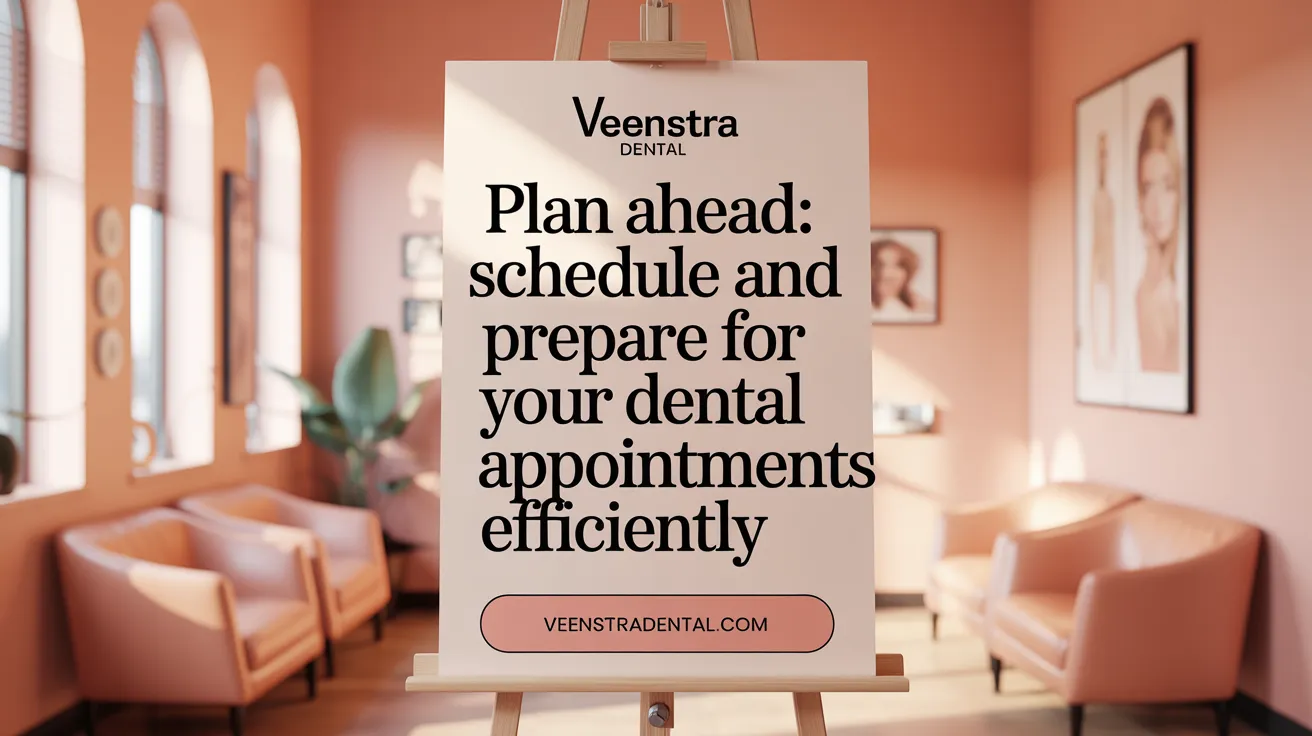The Importance of Strategic Dental Visit Scheduling
Optimizing the timing of your dental visits is essential for maintaining excellent oral health and preventing costly treatments. While the general guideline often suggests visiting a dentist every six months, individual factors significantly influence the ideal frequency. This article explores how to tailor dental checkups and cleanings to your unique oral health needs, risk factors, and life stage to achieve the best outcomes.
Understanding the Basics: Why Regular Dental Visits Matter

Why are regular dental visits important?
Regular dental visits are crucial for early detection and treatment of dental problems such as cavities, gum disease, and oral cancer. Many dental issues develop silently and without pain, making routine examinations indispensable (Importance of Regular Dental Visits, Benefits of regular dental checkups, Routine dental visits).
How often should people visit the dentist?
The general recommendation is to visit the dentist twice a year, or every six months. This allows timely removal of plaque and tartar through professional cleanings, which brushing and flossing at home cannot fully manage. However, visit frequency can vary based on individual risk factors (Dental visit frequency recommendations, Six-monthly dental check-ups, Personalized dental scheduling).
What role do dental visits play in overall health?
Regular dental appointments help reduce risks of systemic health problems linked to poor oral health, including heart disease, stroke, and diabetes. Early identification of oral health issues contributes to maintaining not only a healthy mouth but also a healthy body (Oral hygiene and systemic health, Oral health and overall health, Impact of oral health on systemic health).
How do insurance and cost considerations impact scheduling?
Dental insurance commonly covers two preventive visits annually, making regular checkups cost-effective and encouraging patients to schedule visits before benefits reset. Preventive care can reduce the likelihood of costly treatments later on, ultimately saving time and money (Dental insurance benefits reset yearly, Cost-effective preventive dental care, Using dental insurance for preventive visits).
Regular dental visits are vital for maintaining oral and overall health while supporting early intervention and financial benefits through insurance coverage.
Personalizing Your Dental Visit Frequency Based on Risk Factors

Risk factors influencing dental visit intervals
Dental visit frequency should be tailored based on individual risk factors, rather than a one-size-fits-all approach. Common factors increasing the need for more frequent visits include smoking, pregnancy, medical conditions such as diabetes or immunodeficiencies, existing gum disease, and use of dental appliances. These elements contribute to a higher likelihood of cavities, gum disease, and other oral health complications (see more).
Groups needing more frequent visits
Certain groups benefit from shorter intervals between dental check-ups. Smokers, pregnant women, and people with chronic illnesses often require dental exams every 2 to 4 months to manage their heightened risk. Children typically start dental visits by their first birthday and continue biannually, with schedules adjusted for decay risk or orthodontic treatment (learn about pediatric dental visits). Seniors may need more frequent care due to age-related issues like dry mouth, gum recession, or crown wear (read about senior dental health).
Use of risk assessment tools
Modern dentistry utilizes tools like Delta Dental's LifeSmile ScoreTM to assess personal oral health risks. This enables dentists and patients to customize check-up intervals effectively, balancing preventive care needs while minimizing unnecessary appointments (Delta Dental risk assessment.
Tailoring schedules for children, adults, and seniors
Children begin dental visits early and maintain regular check-ups tailored to their growth and treatment needs. Adults with healthy oral hygiene may safely visit annually or biannually, while those with risk factors attend more frequently. Seniors should have dental care reflecting their specific oral health challenges, ensuring prevention and timely treatment (guidelines for dental visit frequency.
Personalizing dental visit frequency optimizes oral health outcomes and resource use, emphasizing prevention and early problem detection tailored to the individual's health status and lifestyle (importance of regular dental visits).
Evidence and Guidelines: Six Months Versus Personalized Intervals

Traditional six-month checkup rationale
The widely recommended six-month interval for dental check-ups has its origins in practical guidelines and historical marketing rather than robust clinical evidence. This schedule aims to routinely remove plaque and tartar buildup, preventing cavities and gum disease.
Recent research on dental visit intervals
The INTERVAL trial, a large UK-based randomized control study, found no significant difference in oral health outcomes between patients attending every six months, those on risk-based intervals, and those with up to two-year intervals among low-risk individuals. This evidence challenges the necessity of fixed six-month visits for everyone (dental check-ups every six months unnecessary for people at low risk of oral disease).
Risk-based recall approaches
Modern dentistry favors personalized recall schedules based on an individual's oral health status, risk factors like smoking, diabetes, or existing gum disease, and lifestyle habits. Dentists evaluate these factors to recommend visits ranging from three months to two years, optimizing preventive care while minimizing unnecessary appointments (how often should I see my dentist.
Impact of visit intervals on oral health outcomes
Studies indicate that extending recall intervals for low-risk patients does not compromise oral health, while high-risk groups benefit from more frequent monitoring and intervention. Personalized intervals maintain early detection of issues like cavities, gum disease, and oral cancer, supporting cost-effective and patient-centered care (oral health care and routine dental visits).
Is the six-month dental check-up interval necessary for everyone?
The traditional six-month dental check-up recommendation is not rooted in strong scientific data but rather historical practice. Recent studies, including the INTERVAL trial, suggest that low-risk individuals can safely extend their dental visits to every 12 to 24 months without negative effects on oral health. Personalized, risk-based scheduling is increasingly endorsed, enabling dentists to tailor visit frequencies to each patient's unique needs, thereby improving resource allocation and patient comfort while maintaining excellent oral health (expert insights on dental checkup necessity).
Integrating Daily Oral Hygiene and Professional Care for Optimal Oral Health

Daily Oral Hygiene Best Practices
Maintaining excellent oral health begins with consistent daily oral hygiene practices. Brushing teeth at least twice a day using fluoride toothpaste and a soft-bristled toothbrush helps remove dental plaque, a main contributor to cavities and gum disease. It's important to brush all tooth surfaces, including the backs and sides, at a 45-degree angle toward the gums. Flossing once daily cleans plaque and food debris from between teeth, where toothbrushes cannot reach.
Brushing the tongue is also valuable for reducing bacteria and freshening breath. Adding an antibacterial, alcohol-free mouthwash to your routine further helps reduce plaque buildup and harmful bacteria.
Role of Professional Cleanings
While good daily oral care is vital, professional dental cleanings remain essential since tartar (hardened plaque) cannot be removed by brushing or flossing at home. Dentists recommend visiting every six months for comprehensive cleaning, early detection of cavities, gum disease, or oral cancer, and to maintain optimal oral health. These visits involve scaling and polishing teeth, along with preventive treatments like fluoride applications.
How Home Care Influences Check-up Frequency
Consistent and effective home oral hygiene can influence the frequency of dental visits. Individuals with low risk of dental disease, owing to excellent daily care and healthy lifestyle choices, may safely extend the interval between visits beyond six months. Conversely, higher-risk individuals—such as smokers or those with gum disease—might require more frequent visits, sometimes every three to four months. Dentists personalize recall intervals depending on each patient's oral health status and risk factors.
Use of ADA-Accepted Products
Using dental products bearing the American Dental Association (ADA) Seal of Acceptance ensures they meet rigorous standards for safety and effectiveness. Fluoride toothpastes, floss, and mouthwashes with the ADA seal effectively support daily oral hygiene routines and complement professional preventive care, contributing to longer periods of oral health between dental appointments.
How do daily oral hygiene practices affect scheduling dental visits?
Consistent home oral care, including brushing teeth twice daily with fluoride toothpaste, flossing once daily, and using an antibacterial mouthwash, significantly reduces plaque and the risk of cavities and gum disease. Effective daily hygiene can extend the interval between dental visits for low-risk individuals. Nevertheless, professional cleanings every six months or as recommended are essential because tartar buildup cannot be removed by brushing or flossing at home. Using ADA Seal-approved dental products ensures safety and effectiveness, complementing professional preventive care and contributing to longer, healthy periods between visits.
Practical Tips for Scheduling and Preparing for Your Dental Visits

What practical steps help optimize your dental visit schedule?
Scheduling your dental appointments early in the year allows you to fully utilize your dental insurance benefits, especially since many plans reset annually. This helps avoid the year-end rush when dental offices become crowded.
Before your appointment, confirm the date and time and complete any necessary new patient or health history forms to save time at the visit. Preparing a list of questions or concerns can ensure you address all your dental needs during the appointment. For detailed guidance, see routine dental appointment preparation.
Communicating openly with your dental team about your personal health risks, symptoms, or any dental anxiety can help them tailor care to your needs. For those feeling nervous, booking quieter appointment slots or bringing distractions such as music may ease anxiety. Learn more about dental visit anxiety management and patient communication.
Scheduling your next follow-up visit before leaving the office helps maintain continuity of care and supports regular preventive checkups, which are essential for early detection and management of potential dental problems.
By taking these proactive steps, you maximize your preventive care benefits, reduce scheduling stress, and build a positive, ongoing relationship with your dental care team, ultimately supporting better oral health outcomes.
Special Considerations Across Life Stages and Conditions
How should dental visit frequency vary across different life stages and conditions?
Children should begin dental visits within six months of their first tooth eruption or by their first birthday. Regular check-ups every six months or more frequently are critical to monitor growth and prevent early childhood caries. During these visits, dentists provide preventive care including gentle cleanings and parental education on home oral hygiene.
Pregnant women face higher risks for gum disease and cavities due to hormonal changes; maintaining routine dental care throughout pregnancy helps manage these risks. Dental professionals often recommend continued visits, sometimes adjusting the frequency based on oral health status (Dental visit frequency for pregnant women).
Adults with chronic health issues such as diabetes or those who smoke may require more frequent dental visits—sometimes every three to four months—to effectively monitor and manage gum disease and prevent complications. Personalized scheduling based on risk factors supports better oral and systemic health outcomes (How often to see your dentist - risk-based recall.
Seniors often deal with dry mouth resulting from medications, receding gums, and the upkeep of dental appliances like dentures or implants. Individualized dental visit intervals help address these unique challenges, aiming to preserve oral health and function (Oral care tips for older adults).
Emergency dental care should be sought promptly regardless of the routine visit schedule. Symptoms such as tooth pain, bleeding gums, or swelling require immediate attention to prevent worsening conditions (Dental emergencies and care).
Maintaining a personalized dental visit schedule tailored to life stage and health conditions supports effective prevention, early detection, and treatment for optimal oral and overall health (Personalized dental visit schedules).
Tailoring Dental Visit Frequency: The Path to Sustained Oral Health
Scheduling dental visits for optimal oral health involves balancing standard guidelines with individual needs, risk factors, and life circumstances. While biannual visits remain a reliable baseline, embracing personalized schedules supported by clinical evidence and risk assessments can enhance care efficacy and patient comfort. Coupling professional dental care with diligent daily oral hygiene and proactive appointment management empowers individuals to maintain healthier teeth and gums, prevent serious health issues, and optimize healthcare resources. Consult your dental professional to create a visit plan tailored uniquely to you, ensuring a lifetime of bright, healthy smiles.
